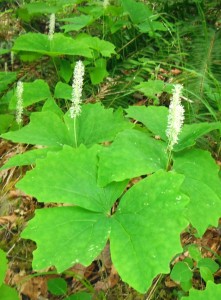
News/Reports
Bowser ER #135 Purpose Statement 2003
Purpose Statement
Ecological reserves are areas selected to preserve representative and special natural ecosystems, plant and animal species, features and phenomena. The key role of ecological reserves is to contribute to the maintenance of biological diversity and the protection of genetic materials. All consumptive resource uses and the use of motorized vehicles are prohibited. Research and educational activities may be carried out but only under permit.
Primary Role
The primary role of Bowser Ecological Reserve is to protect a highly productive forest ecosystem and wetland comprised of swamps and ponds. The forested portion of the site is transitional between the Coastal Douglas-fir (CDFmm) and Coastal Western Hemlock (CWHxm) biogeoclimatic zones. The rich colluvial soil supports a Douglas-fir forest established 100 years ago after fire that has grown into very large specimens despite their age with the potential to become record-size trees. The ecological reserve protects two red-listed rare plant communities (grand fir — dull Oregon grape and western redcedar — vanilla leaf) and a high diversity of dragonflies including some regionally rare species that are restricted to specific types of peatland habitats.
Secondary Role
The secondary role is to represent the natural environment of the southeastern coast of Vancouver Island. Located 18 kilometres north of Parksville, this high quality Douglas-fir growing site contributes to the representation of the Nanaimo Lowland Ecosection and the Coastal Western Hemlock xm1 biogeoclimatic variant. Both of these land units are highly impacted and under represented in the protected areas system, and Bowser Ecological Reserve has a remnant value in protecting these ecosystems.
Tertiary Role
The tertiary role is to provide opportunities for non-destructive forest research. Unique opportunities exist to research a highly productive forest ecosystem, a high diversity of dragonflies, and plant communities that are rare on southeastern Vancouver Island.
Management Issues
|
Known Management Issue |
Response |
|
Lack of knowledge of natural and cultural values |

